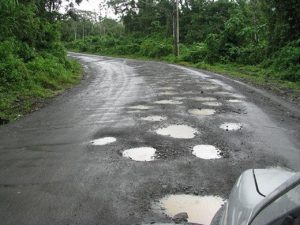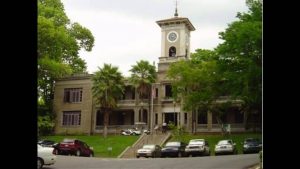The colonization of Puerto Rico begins with the name of a very famous sailor we are all familiar with, Christopher Columbus. In 1943, Columbus discovered the island of Puerto Rico and claimed it for Spain. Spanish settlement on the Caribbean island began soon after. Before the Spaniards came, the Taino Indians called the small island their home. However, the Europeans brought new diseases which wiped out much of the previous Indian population.
In 1815, the Royal Decree of Grace was issued, allowing all foreigners to be admitted to Puerto Rico and Islanders to trade with other nations. Around the same time, Puerto Rico exhausted the final riches of their meager gold supply. Due to this loss of economic activity from the small gold rush, the islanders began to try and establish an agricultural based economy. Cattle, sugar cane, tobacco and coffee were the core investments.
In 1898, the Spanish-American War, a conflict between the United States and Spain over colonial rule of Puerto Rico, had come to an end. The United Stated acquired the territory in the Treaty of Paris. Soon after, the Foaker Act of 1900 established a civil government for the territory govern itself.
As we can see, much of the current state of Puerto Rico has been shaped from historic events. The Spanish settlers brought over much of their culture to the island, including the Spanish language. This is evident because even though Puerto Rico is now a United States’ territory, much of the island speaks Spanish as their primary language. Secondly, the Royal Decree of Grace allowed Puerto Ricans to begin trading. This new law, along with running out of gold supply on the island, sparked a switch towards a more agricultural based society. Lastly, it is obvious the effect that American culture has had on the current culture of Puerto Rico. Many of the islands citizens can speak English, and they have also adapted many of our holidays and customs as well. According to forumbiodiversity, another one of the largest influences the United States has had is in the educational systems. The University of Puerto Rico was officially founded in 1903, shortly after the United States took over. Overall, it is very obvious to see that historical events in Puerto Rico’s history have made lasting impressions on the identity of the country today.
While the tropical island may seem like a great territory, it has its many problems as well. The Puerto Rican government currently has more than 70 billion dollars in outstanding debt, and the future does not look much brighter. The effects of their lackluster economy can be seen all across the island, as education systems are failing and unemployment rates continue to rise. It was also very obvious that the infrastructure of the island was a lot more worn down than what we are used to here in the United States. Congress is currently not helping out Puerto Rico at all, so there is very little hope from the future unless some changes are made effectively.
If the government can supply some money to the island, I’d advocate for it to be put toward the education and healthcare systems. Increasing education will have many major benefits. Unemployment will go down and the economy would flourish with more educated civilians working good jobs across the country. Another area the country can improve in is their agricultural production. As we’ve talked about over and over again, most of their food is imported. This is a lost opportunity to gain revenue for the people of Puerto Rico by not producing their own food, but by buying from other countries.
Solving these problems are not going to be easy, and will take years. However, by applying a systems approach and thinking about how all aspects effect each other, I hope one day these financial burdens can be lessened.




This is a great piece! I am personally very interested in history, and found that the short history of Puerto Rico and the island’s interactions with Spain and the United States. It is truly sad that this conquering mentality created so many casualties through not only fighting, but also through diseases being brought to the country. I really agree with what you said about the money being used first for health care and education because in my opinion, that is the first step to a more permanent solution. Education and health are two things that create the ability to solve other problems. Just throwing money toward a huge problem is honestly putting a Band-Aid on a bullet hole and to truly fix the problems the native people of the island need to know how they can fix them.
This was very well written! You can tell that you researched this topic a lot before you wrote this post. The infrastructure problem was something that was very evident throughout our time in Puerto Rico. The roads were so bumpy, and some of the bus rides were pretty rough! You can also tell that Puerto Rico has a mix of both Spanish and English influences in their culture, from their times spent as both Spanish and U.S. territories. Puerto Rico is now such an interesting mix of both, with their Spanglish and mixed traditions. I also agree with you that Puerto Rico would benefit from investing in their education systems. The economy could use a boost and getting more educated workers out there would definitely be helpful! I definitely think that we should mention some of the problems that Puerto Rico currently has in our booth, such as poverty and unemployment, and briefly discuss some possible solutions that the government could try.
Nicely put. I completely agree with this post. Many times, we fail to realize just how large of an impact history has on the modern world. I think this is important to note in our open house booth, especially concerning agriculture. Puerto Rico was once taken advantage of for its agricultural resources, now it barely exports anything. Just like the continental United States, Puerto Rico is facing problems.
Very good piece of writing! The history of Puerto Rico was very interesting. It Is amazing how the Spanish were constantly able to fight off invaders from other European powers until its defeat by the United States. Regarding the economic and infrastructural issues, I totally agree with you. The quality is much lower than in the mainland. I also agree that we should improve education and healthcare systems to lower crime and poverty rates. I think we should include the pictures of the potholes in the road to give our audience a perspective of Puerto Rico’s crumbling infrastructure.